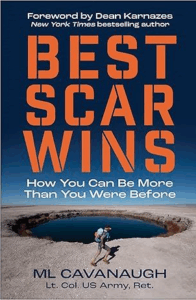1K4D: Looking Back on the Georgia Race
It was only about 20 or 30 seconds long. A moment, a blip, during the 40-mile-long Stage 5 at Racing the Planet’s Georgia 2022 race. One of my competitors noticed I wasn’t running as normal and asked if he could give me some water or food or help somehow. His inquiry was genuine, with real concern for my well-being.
You wouldn’t get that at any other race.
Which is why I think I found the perfect race, run through the mud and rain of Georgia. I realized just how special this race series was in that moment of painful personal weakness.
This is the Georgia far from Atlanta, far from the sun and sweat in the American Georgia. This Georgia, on the far side of the world, wedged into the Caucasus Mountains, between the Black and Caspian Seas, is ancient and tough and cold and damp and full of wild dogs. It’s been invaded by empires including the Byzantines, Persians, Mongols, Ottomans and Russians. One local author said the capital, Tbilisi (“place of the warm water,” so named for the city’s natural sulphur baths), had been destroyed 27 times, more than any other world city, save for Jerusalem.
But those empires are all gone. Georgia still stands. These people, this place, is really tough.
Which is probably what drew runners and staff from 26 different countries to Racing the Planet’s Georgia 2022 race. 155 miles/250 kilometers in 6 stages across 7 days, in the roughest terrain and harshest weather imaginable. Wind. Rain. Fog. Hail. In a day, and sometimes, in just a few hours.
But while the location was special, that’s not what makes this race series special.
It’s the format.
In most races, you run hard and go home. An hour, or two, or three, then you can get back to that intimate relationship with your smartphone.
But at Racing the Planet events, like the one in Georgia, you’re stuck out in harshland together, for that full week, running with only the supplies on your back and the support of your fellow competitors.
Of course everybody wants to win or one-up the competition. But we also knew full well the only ally we had out there in that brutiful landscape was also the competition. 26 countries can fuse into a single tribe quickly.
What emerges is a perfect blend of competition and cooperation.
It wasn’t just that in-race “how you doing” moment when I was hurting that I got help. Over the course of the week, I benefitted from fellow competitors in everything from pre-race packing, in-race conversation, and post-race supplies (including a much-needed offer of toilet paper when it was scarce and I was down to rationing by the square). The guy who finished just behind me, who battled to beat me everyday, even offered his mini foam roller for my use when my IT band tightened and my leg locked up so bad it caused me to walk during that Stage 5.
My takeaway is the world needs more, a lot of more, of these events. Places where the competition is as fierce as it is civil. Where we’re willing to help our opponent sometimes, because by doing so, we make ourselves stronger, sharper, better.
And always, always, no matter what you might think—bring a little extra toilet paper.
Best Scar Wins

To order Matt’s new book, Best Scar Wins: How You Can Be More Than You Were Before, visit barnesandnoble.com.